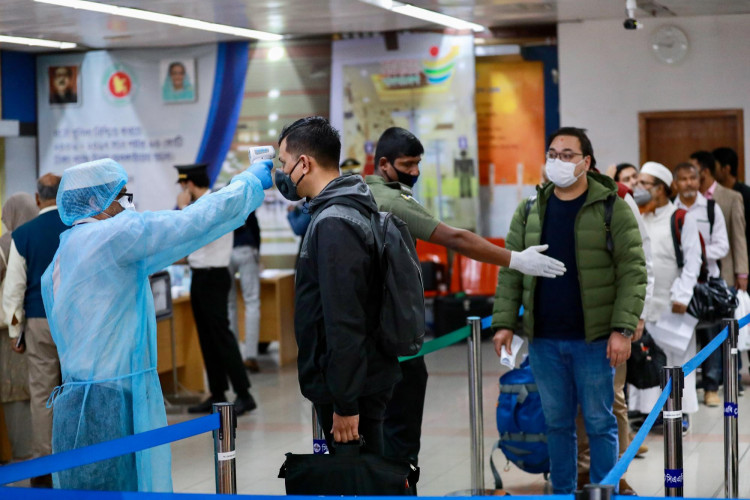South Korea has registered its 16th straight day of triple-digit increases in fresh COVID-19 infections on Saturday, widening the second wave of contagion that is spreading fears about a collapse in the country's capacity to deal with the crisis.
The Korea Centers for Disease Control and Prevention reported 308 new coronavirus cases as of Friday midnight, with most of the cases being recorded in Seoul and nearby regions. The shortage of sickbeds in the city's medical facilities is now one of the biggest worries being faced by the local government.
After South Korea prevented the first huge outbreak outside China in the early months this year, Seoul is now being hounded by a series of pains after a religious activity cluster spread to a political gathering in the capital, participated by tens of thousands of people from across the nation.
The latest figures provided by the KCDC on Saturday placed the country's current caseload to around 19,400. Death rates have hit 321 after South Korea added five more fatalities in the past hours. Health authorities said almost 250 of the new infections emerged from heavily-populated Seoul district, where around 50 percent of the nation's 51 million people live.
Officials reported that new outbreaks have continued to erupt at nursing homes, offices, churches, and health centers even after the city has imposed more rigid social distancing rules. The increase in infections has overwhelmed medical facilities, with health officials disclosing that only 4.5 percent of beds in the capital was available for emergency use as of Friday, down from 22 percent last week.
Meanwhile, the government has expressed worry, especially as nearly 16,000 resident doctors and interns have been on strike since August 21 in discord over proposals to increase the number of frontliners and physicians to better handle the crisis. Health officials filed a police complaint against 10 doctors and issued them a return-to-work order.
The striking doctors have volunteered to work at temporary testing facilities to help efforts in containing the spread of the virus, but major hospitals said they have experienced difficulties since the strike.
Meanwhile, some 200 COVID-19 survivors from a secretive South Korean organization whom the government blamed for the nation's initial wave of infections donated blood plasma on Friday to help in a treatment study, in an attempt by the group to redeem itself.
Medical experts have pointed to the promise for treatment using human blood plasma that contains antibodies to the virus from people who have recovered from the sickness.






